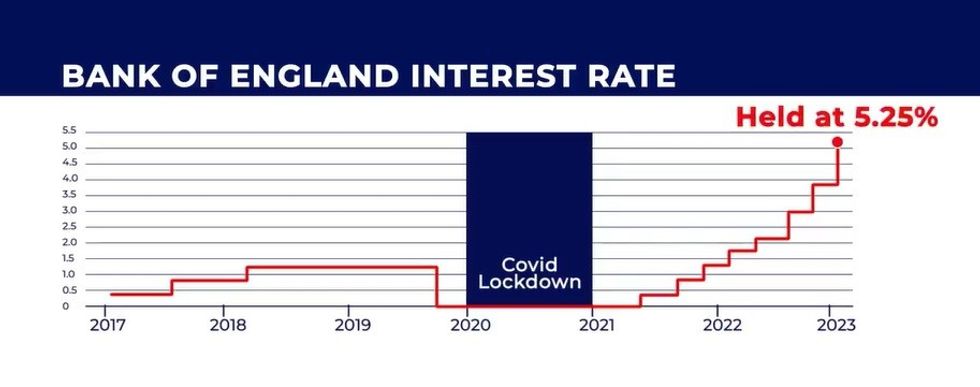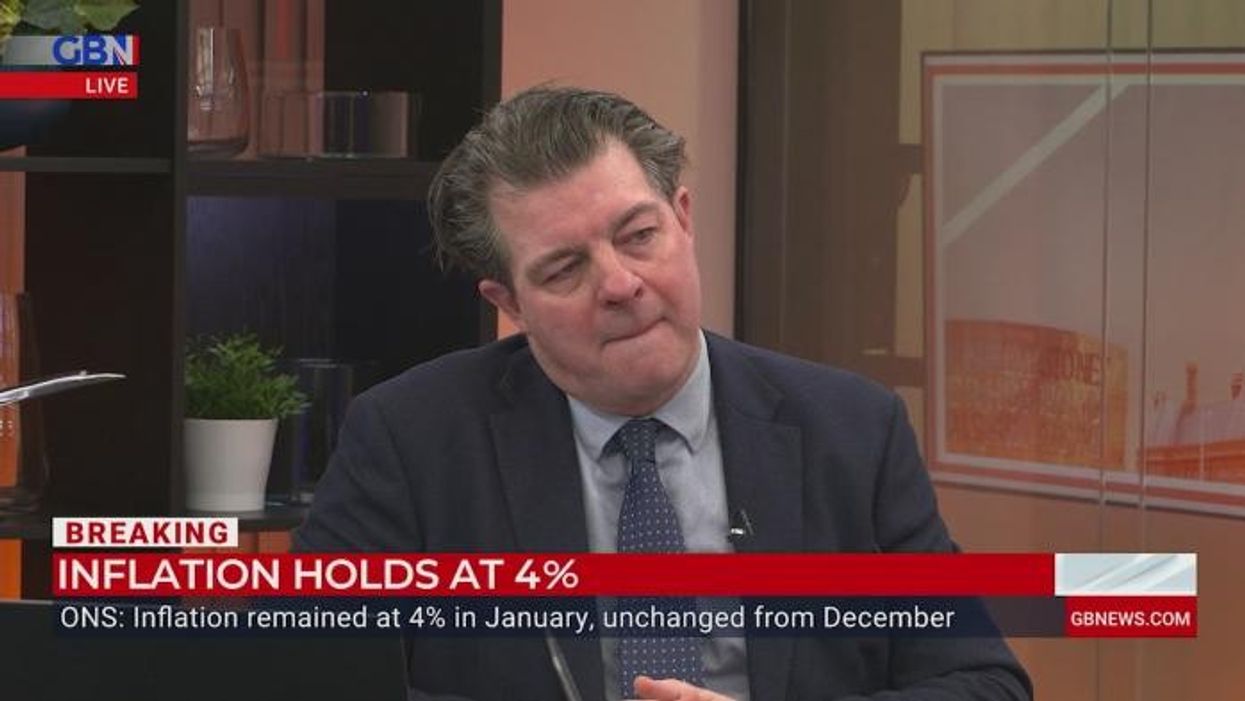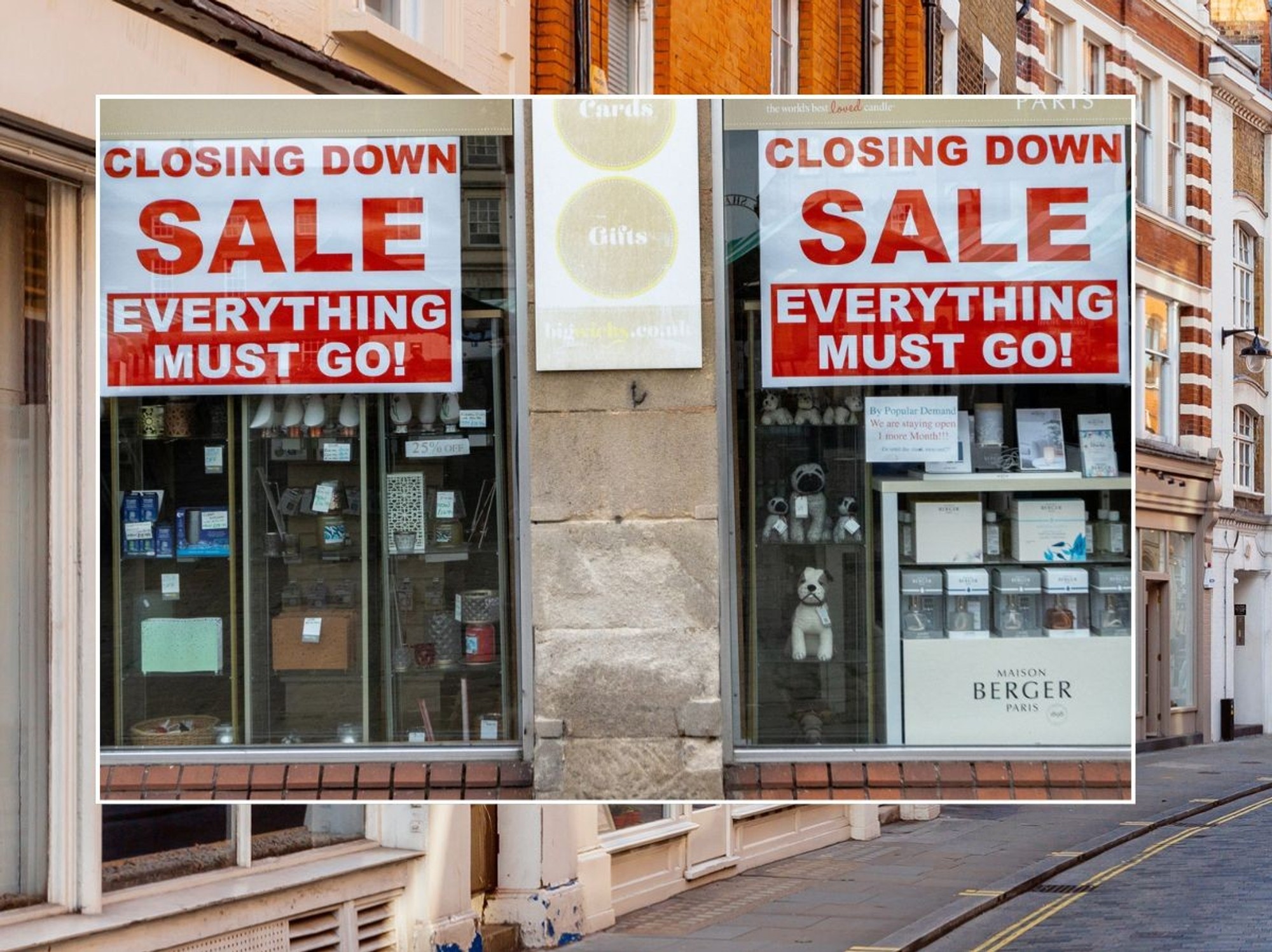Citizens Advice has warned many young savers are being squeezed as they face “triple whammy” of surging costs
Don't Miss
Most Read
Trending on GB News
A man living “pay cheque to pay cheque” with no savings has seen his debt spiral to £2,000 amid the surging cost of living.
Jack, 24, from Derby, earns a “below average” income in his graduate job, and as bills have soared, he has fallen behind on important payments.
The graduate, who lives in a rented house with one roommate, fell into debt – which is on top of student loans – mostly due to late payments of electricity, gas and council tax bills, and often finds himself in his overdraft.
He said: “I don’t have any savings, which is concerning. I’m very much one of those pay cheque to pay cheque type people. I really, really, really want to clear my debts and start saving.”

The man said the higher cost of living is a "massive part of the problem"
GETTY
Jack added: “A massive part of the problem is the cost of living.
“I look at my income, which is more than the minimum wage, but below average. And then I look at my outgoings, and it’s like – I pay my rent, I pay all my bills. ‘Oh, great, my bills are going up again, even as I’m trying to tackle my debts.’”
Jack often hears the suggestion of making a budget plan and sticking to it. He said he would, but with his bills increasing by £100 every two months, finding the cash to pay off his overdraft proves impossible.
“I could eat less and starve; I could just not tackle my debt; or I could start paying bills on credit again,” he said. “It’s not like I can just go to my boss and say, ‘Can I get a pay rise because of the cost of living?’ There have been lay-offs left, right and centre in my industry at the moment.”
Citizens Advice is warning many young people are feeling particularly stretched due to soaring living costs, rising private rents and high inflation.
The charity has seen the number of young people seeking financial advice double since 2019.
They have supported 66,000 under 25s last year alone, including helping 13,800 young adults with debt advice.
Meanwhile, nine in ten (90 per cent) of under 25s feel uncomfortable talking about finances, new research by Citizens Advice said.
Jack says he didn’t tend to talk about money growing up, and doesn’t like discussing it now to avoid his loved ones worrying.
“There’s a mixture of embarrassment, price… all those negative emotions,” he said. “I fully think that my financial situation has been affected by not knowing where to get good advice.
“If I’d just spoken to someone and explained my current situation, they might have been able to tell me what to do.”
Jack added: “I’d feel more comfortable talking about money if I had a clue what’s going on. But I don’t, so I don’t like discussing it.
“If someone wants to directly ask me about it, I’ll chat about it, but it’s never a topic I’d bring up. It’s just stressful, isn’t it? It’s never a good, happy conversation.”
LATEST DEVELOPMENTS:

The Bank of England base rate is currently at a 15-year high of 5.25 per cent
GB NEWS
Jack has been trying to learn about financial literacy and has taken steps to tackle his debt in recent months.
He’s managed to clear around £1,000 so far but says is struggling to clear it all.
“The number is going down, but I don’t think it’s ever going to hit zero,” he said. “To get there, I’d have to figure out a clear plan and keep everything in a budget that’s actually manageable. It’s really hard.”
Rosi Avis, Partnership and Communication Lead at Citizens Advice Manchester, said: “All of us can struggle to find the words when it comes to talking about our finances. And we know young people are really feeling the pinch with rising costs and sky-high rents.
“At Citizens Advice we help thousands of people find a way forward every day. So whether it’s a dodgy landlord, a retailer who’s refusing to give you a refund, or help with credit card debt, we can support you.
“The most important first step is to speak to someone about your worries: whether it’s a family member, a mate or one of our trained advisers. We’re here to help and make you feel less alone.”









